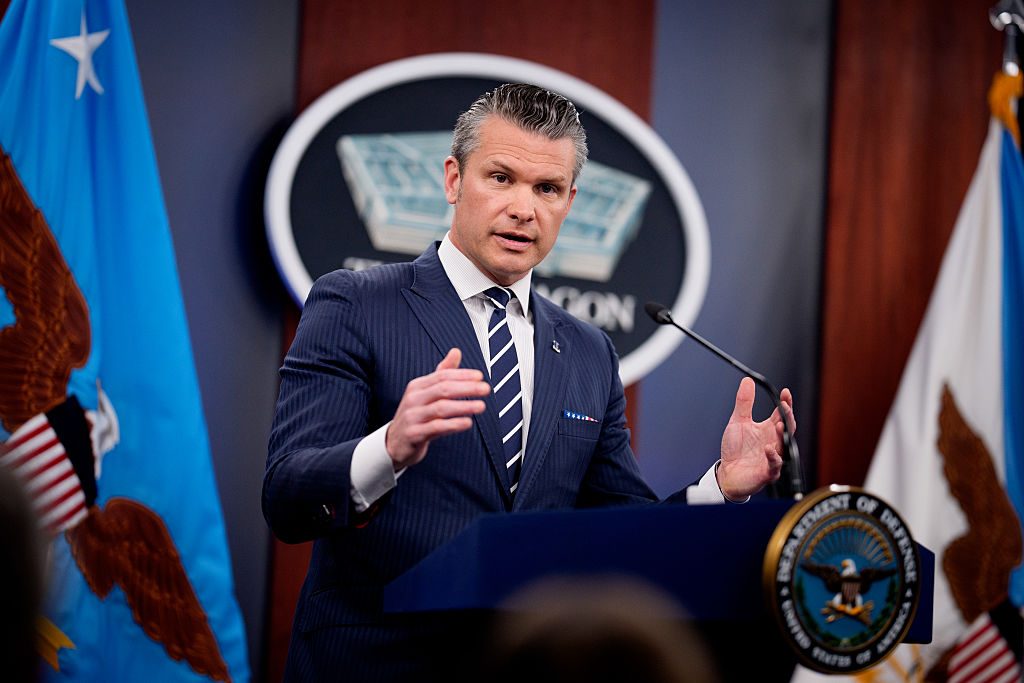The Pentagon is cracking down on the press. Under new rules, journalists accredited to Defense Department headquarters must sign contracts forbidding them from pursuing sensitive or classified information unless it has been officially pre-cleared. In other words, reporters are being forced to surrender their independence and rely solely on what the Pentagon approves.
Pentagon spokesman Sean Parnell has claimed that “these are basic, common-sense guidelines to protect sensitive information as well as the protection of national security and the safety of all who work at the Pentagon.” In reality, as Defense Secretary Pete Hegseth and Parnell well know, these measures are not designed to secure the Pentagon against possible threats, but rather to secure the Trump administration against objective media scrutiny.
Hegseth is desperate to avoid critical or embarrassing media coverage that might jeopardise his standing with the White House. The Defense Secretary’s position has been in question since the so-called “Signalgate” scandal earlier this year, and he is aware that one more scandal of this kind would likely see Trump force him out of office.
Still, there is an inherently authoritarian dynamic at play with these rules. By demanding this pledge, the administration forces journalists to choose between doing their jobs and becoming de facto propagandists. It is unclear, however, whether these rules will survive against outside pressure.
While the courts will likely uphold rules that limit the granting of press credentials to those few (if any) journalists willing to sign these agreements, there are likely to be legal challenges on the constitutional question as to the enforced speech that signing these agreements entails. Certainly, there will be a great many military officers who are uncomfortable with these rules. Some may decide to speak out openly in the coming days, perhaps even resigning over the issue.
There is also precedent showing that challenging media coverage served the national interest. Two examples here are the so-called “Pentagon papers” regarding the war in Vietnam, and later reporting on false statements given to the public in relation to the war in Afghanistan. The importance of journalists being able to report on the Defense Department freely extends to issues as prosaic as UFOs to those as potent as the prospect of war with China.
The central underpinning of the US military’s ethos is civilian control over the military, and the accountability of the military to democratic scrutiny, including media investigation. This action is anathema to that interest. Hegseth’s tendency to screech at journalists who ask difficult questions exacerbates this concern. Following the strikes on Iran’s nuclear programme earlier in the year, for example, Hegseth launched a tirade against his former Fox News colleague and highly respected Pentagon reporter Jennifer Griffin. The discomfort on the face of Chairman of the Joint Chiefs of Staff Gen. Dan Caine was evident at that moment.
This action is also a defining example of hypocrisy. After all, by so blatantly and aggressively seeking to corral means of reporting on matters of public importance related to the US military, the Trump administration is constructing a shield to protect what many MAGA enthusiasts would describe as a key element of “the Deep State”.
That might serve MAGA well in this moment, but over the longer term it will only reinforce the worst tendencies of the federal bureaucracy to hide its failures from public view.











Join the discussion
Join like minded readers that support our journalism by becoming a paid subscriber
To join the discussion in the comments, become a paid subscriber.
Join like minded readers that support our journalism, read unlimited articles and enjoy other subscriber-only benefits.
Subscribe